Deja vu all over again .. Justin Trudeau weighs in: Is Quebec a Nation?
Oct 27th, 2006 | By Citizen X | Category: Canadian Provinces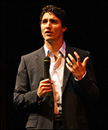 Now the late Pierre Trudeau’s eldest son, Justin – a.k.a. husband of “Canada’s Princess” Sophie Gregoire – has entered the new great debate started by Liberal leadership candidate Michael Ignatieff. I.e. should the Canadian constitution at long last recognize that la belle province is a nation within Canada, or something like that? Like his father, Justin Trudeau wants no part of this idea. He says that Quebec nationalism is an “old idea from the 19th century,”and “based on a smallness of thought.” As for myself, I think I am coming to think that my position is Yes and No. But I agree with the Edmonton Journal too. If we are going to start talking about all this yet again, we also have to talk about such things as Senate reform (which, in any case, we seem to be doing already).
Now the late Pierre Trudeau’s eldest son, Justin – a.k.a. husband of “Canada’s Princess” Sophie Gregoire – has entered the new great debate started by Liberal leadership candidate Michael Ignatieff. I.e. should the Canadian constitution at long last recognize that la belle province is a nation within Canada, or something like that? Like his father, Justin Trudeau wants no part of this idea. He says that Quebec nationalism is an “old idea from the 19th century,”and “based on a smallness of thought.” As for myself, I think I am coming to think that my position is Yes and No. But I agree with the Edmonton Journal too. If we are going to start talking about all this yet again, we also have to talk about such things as Senate reform (which, in any case, we seem to be doing already).
If Quebec isn’t a nation, how come its provincial legislature has been called L’Assemble nationale du Qubec since 1968?
 This is one question about the debate over Quebec nationhood that has always puzzled me – at least since 1968 (also the year when Rene Levesque founded the present sovereigntist Parti Quebecois, and the year that Pierre Trudeau became prime minister of Canada).
This is one question about the debate over Quebec nationhood that has always puzzled me – at least since 1968 (also the year when Rene Levesque founded the present sovereigntist Parti Quebecois, and the year that Pierre Trudeau became prime minister of Canada).
Setting such matters aside, however, it’s seemed to me as well that many Canadians outside Quebec who have strongly supported Pierre Trudeau’s position against recognizing Quebec as a nation within Canada – or otherwise giving Quebec some form of “special status” inside the confederation – have not exactly appreciated his particular arguments.
Justin Trudeau’s father, that is to say, took this position because he believed it was unfair to Canadians in the rest of the country to ask them to both constitutionally recognize Quebec’s unique circumstances and make greater room for the French language in Canada outside Quebec. And what Trudeau believed in above all else was that French-speaking Canadians should be able to feel comfortable with their own language in all parts of Canada.
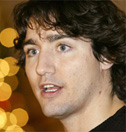 Even today, e.g., something close to a majority of Canadians in Quebec only speak French – just as a very large majority of Canadians outside Quebec only speak English. If unilingual Quebec francophones are going to be able to feel comfortable in all parts of the country, then it ought to be possible for them to get by speaking only French in all parts of the country.
Even today, e.g., something close to a majority of Canadians in Quebec only speak French – just as a very large majority of Canadians outside Quebec only speak English. If unilingual Quebec francophones are going to be able to feel comfortable in all parts of the country, then it ought to be possible for them to get by speaking only French in all parts of the country.
Of course, it doesn’t take a lot of experience traveling around Canada to grasp that even today there are at best only a few places outside Quebec where a person who speaks only French can get by in everyday life (the east end of Ottawa, e.g., and northern New Brunswick?) Close enough to 40 years after Pierre Trudeau first became prime minister of Canada, there still does not seem much serious willingness among the overwhelming English-speaking majority in the rest of the country to, as it were, learn French to the degree that would be required to make unilingual francophones comfortable – even in downtown Halifax or Toronto, to say nothing of downtown Calgary or Vancouver much further away.
As part of this overwhelming English-speaking majority myself, I can certainly appreciate the difficulty and the reluctance. The ultimate trouble with Pierre Trudeau’s theory of Canada in this respect was that he wanted to turn the rest of the country into the kind of bilingual Montreal of which he was such a flawless native son. Not too surprisingly, this proved a monumentally utopian project. And in this sense, I have finally concluded, my answer to the question of whether the Canadian constitution should at long last recognize that la belle province is a nation within Canada, or something like that, is Yes.
But what province of Canada has the greatest percentage of Canadians who identified their “national or ethnic origin” as “Canadian” in the 2001 Census of Canada?
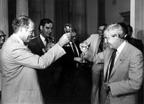 The sense in which my answer to the question is also No is, I think, slightly more complicated. To start with, “nation” can be a rather slippery word. Canada at large still has at least as much trouble being a nation as Quebec. And if Quebec is going to be called a nation in some definitive constitutional sense, it is probably going to be just that much harder for Canada at large to live up to its own national dreams, etc.
The sense in which my answer to the question is also No is, I think, slightly more complicated. To start with, “nation” can be a rather slippery word. Canada at large still has at least as much trouble being a nation as Quebec. And if Quebec is going to be called a nation in some definitive constitutional sense, it is probably going to be just that much harder for Canada at large to live up to its own national dreams, etc.
Then there is another intriguing point that we seem to have bumped into once or twice now over the past 40 years, especially at the edges of Quebec sovereignty referendums. It is a plain and inescapable historical fact – outside and inside Quebec – that French-speaking people from Quebec were the first people who called themselves Canadians. (Even though “Canada” itself is an aboriginal word, and the real first nations are aboriginal Canadians.)
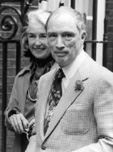 When push finally does come to shove, Quebecers themselves can’t escape this historical fate. (Which is why both Quebec sovereignty referendums so far have failed – and the question involved in both cases was not really about altogether “leaving Canada”anyway.) Still more to the point, we overwhelmingly English-speaking people in the rest of the country who continue to harbour some kind of Canadian national dreams have no real interest at all in wanting Quebecers to escape their deep historical identity as Canadians.
When push finally does come to shove, Quebecers themselves can’t escape this historical fate. (Which is why both Quebec sovereignty referendums so far have failed – and the question involved in both cases was not really about altogether “leaving Canada”anyway.) Still more to the point, we overwhelmingly English-speaking people in the rest of the country who continue to harbour some kind of Canadian national dreams have no real interest at all in wanting Quebecers to escape their deep historical identity as Canadians.
This short article here is already getting a bit too long. For further evidence of what I am trying to talk about, I would just urge some attention to the following two tables of cold statistics from the 2001 Census of Canada:
TEN LARGEST SINGLE-ORIGIN GROUPS IN CANADA, 2001
Group | % of all Canadians |
Canadian | 22.8 |
British | 9.0 |
French | 3.6 |
Chinese | 3.2 |
South Asian | 2.7 |
Italian | 2.5 |
German | 2.4 |
Aboriginal | 1.9 |
Caribbean | 1.1 |
Dutch | 1.1 |
Total Top 10 | 50.3 |
Other Single Origins | 11.5 |
Multiple Origins | 38.2 |
All Canada | 100.0 |
SOURCE: Statistics Canada
.% SINGLE-CANADIAN-ORIGIN POPULATION BY PROVINCE, 2001
Province | % “Single Canadian” |
Quebec | 47.9 |
Newfoundland & Labrador | 41.0 |
New Brunswick | 33.7 |
Nova Scotia | 28.0 |
Prince Edward Island | 24.0 |
Ontario | 14.2 |
Alberta | 13.2 |
Saskatchewan | 11.6 |
Manitoba | 10.2 |
British Columbia | 9.9 |
CANADA | 22.8 |
SOURCE: Statistics Canada.
So, to make a long story very short, what is to be done? For what it may or may not be worth, my own current wildly Canadian speculation goes something like this.
Whatever else, all Quebec leaders since 1867 have always agreed that while Quebec may be a province of Canada, it is “not a province like the others.” (To be more exact, it has a French-speaking democratic majority, while all the other provinces have English-speaking democratic majorities.) So why not just recognize this, in a way that does not involve any potentially confusing constitutional verbiage?
Let’s finally constitutionally reform the Senate, e.g., so that it’s elected, effective, and suitably regionally representative. (Though not provincially equal – that will never work, and not just because of Quebec, as Ontario Premier Dalton McGuinty has lately been trying to tell anyone who might be able to parse his complex sentences.) And as part of this reform let’s just give Quebec twice as many senators as any other province – to clearly show with a minimum of risky legal mumbo jumbo that it really is not a province like the others, etc.
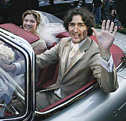 You can say of course that this is just too altogether wild and crazy and will never work. But Canada is, for better or worse, a quite wild and crazy nation in its own right. And if Justin Trudeau’s father had the guts and courage and gritty determination to finally give us the Constitution Act 1982 and the Canadian Charter of Rights and Freedoms, against all the odds, surely some leaders of the rising generation will be able to move us a few further steps ahead. (Especially if they have some warm support from the sunny ways of “Canada’s Princess” Sophie Gregoire, who must at least be making Pierre Trudeau smile from his grave, in his beloved Canadian city of Montreal.)
You can say of course that this is just too altogether wild and crazy and will never work. But Canada is, for better or worse, a quite wild and crazy nation in its own right. And if Justin Trudeau’s father had the guts and courage and gritty determination to finally give us the Constitution Act 1982 and the Canadian Charter of Rights and Freedoms, against all the odds, surely some leaders of the rising generation will be able to move us a few further steps ahead. (Especially if they have some warm support from the sunny ways of “Canada’s Princess” Sophie Gregoire, who must at least be making Pierre Trudeau smile from his grave, in his beloved Canadian city of Montreal.)
Citizen X is the author of the late 1990s book Who Are the People of Canada Anyway? Waiting for the Next Referendum, and various more recent items of more casual journalism in various publications, on and off line.

